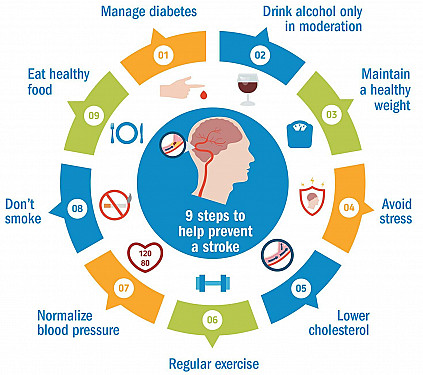Lifestyle strategies to help prevent natural age-related decline in testosterone
- Reviewed by Howard E. LeWine, MD, Chief Medical Editor, Harvard Health Publishing; Editorial Advisory Board Member, Harvard Health Publishing

As men get older, their testosterone levels naturally decrease, which can cause undesirable symptoms for some. However, adopting healthy lifestyle habits can help improve or maintain testosterone levels.
What is testosterone and what does it do?
Testosterone is a hormone primarily produced in the testes. It plays a crucial role in male development and characteristics, influencing muscle mass, bone density, and sex drive. It's also important for regulating mood and cognitive function.
Testosterone levels change throughout life: they are low before puberty, increase sharply during puberty, and then gradually decrease by about 1% each year, although there are some exceptions.
What can cause levels of testosterone to drop?
Signals from the brain to the pituitary gland regulate testosterone production in men. The pituitary gland, which is found at the base of the brain, sends messages to the testes to produce testosterone. A "feedback loop" carefully monitors levels of this hormone in the blood.
Anything that affects this system can contribute to declining testosterone levels. Aging is the most common cause, but other genetic and acquired conditions can also lead to drops in testosterone. These include:
- obesity
- chronic diseases, such as kidney disease, diabetes, lung disease, and cirrhosis
- critical illness, such as a heart attack, surgery, or head trauma
- certain medications, such as glucocorticoids (steroids) and opioids
- congenital disorders, such as Klinefelter syndrome and Turner syndrome
- stress
- sleep apnea
- tumors.
What are the symptoms of low testosterone?
Many men with low testosterone never have symptoms. When symptoms do occur, low testosterone can cause a range of effects. Some symptoms are general, such as fatigue, poor concentration, and mood changes. Others are more specific, such as:
- reduced sex drive
- erectile dysfunction
- infertility
- physical changes including decreased muscle mass, increased body fat, and thinning hair.
If you have any of these symptoms, ask your doctor if it might be related to low testosterone. He or she can order a blood test to check the level. Because blood testosterone levels can fluctuate, it's important to do the test in the morning before 10 a.m. In general, a normal total testosterone level is 300 ng/dL or higher.
Natural ways to help maintain testosterone levels
Certain lifestyle habits can help slow the natural testosterone decline that comes with age. Doctors often recommend a trial of intense lifestyle changes for men with low testosterone before considering medications.
Here are some natural ways to maintain and improve testosterone levels as you age.
Maintain a healthy weight and lose weight if needed
Maintaining a healthy weight is crucial for testosterone levels. Excess body fat, particularly around the abdomen, can contribute to lower testosterone. Losing weight through a balanced diet and regular exercise can help boost testosterone production up to 30%, according to some research.
Exercise
Regular physical activity is one of the best ways to maintain healthy testosterone levels. Both resistance training like weightlifting, and cardiovascular exercises such as running or swimming, can increase testosterone.
The largest improvements are seen with moderate- or high-intensity resistance exercises involving large muscle groups, such as squats and bench presses.
Other lifestyle changes
Other factors that can affect testosterone levels include:
- Diet. Well-rounded diets full of healthy fats, proteins, and nutrient-dense fruits and vegetables support healthy testosterone production. Foods that have been linked to increased testosterone include onions, oysters, fatty fish (which contains healthy omega-3 fats), and extra virgin olive oil.
- Alcohol. Excessive alcohol consumption can lower testosterone levels, impair sexual function, and reduce sperm count due to hormone disruption. Reduce or avoid alcohol, or at least limit your intake to no more than one drink per day.
- Smoking. Nicotine found in cigarettes and chewing tobacco has been linked to lower testosterone levels, though some studies suggest smoking may not affect or could even increase these levels. However, smoking can negatively affect male reproductive health, including sperm count, motility, and morphology. Quitting smoking may help some men restore a normal testosterone level.
- Environmental toxins. Chemicals found in certain plastics, including bisphenol A or BPA, disrupt hormone-producing glands and have been associated with decreased testosterone levels and reduced sperm count. Try to avoid BPA-containing products such as plastic bottles, containers, and certain canned foods. Instead, look for "BPA-free" labels.
The role of sleep in testosterone production
Adequate sleep is essential for maintaining testosterone levels. Most testosterone release occurs during sleep, particularly during the rapid eye movement (REM) stage.
Sleep apnea, a condition in which you stop breathing for short periods while you are asleep, can negatively affect hormone levels, including testosterone.
Aim for seven to nine hours of quality sleep per night to support healthy hormone production. If you have sleep apnea or are concerned you may have symptoms of this condition, talk with your doctor about treatment options.
Manage stress to help libido
Chronic stress can also negatively impact testosterone levels and libido. High stress increases cortisol, a hormone that can interfere with testosterone production.
Stress affects not only the body but also the mind. It can cause mental distractions and make it hard to focus on or enjoy sex. Additionally, stress can impact your mood, potentially leading to anxiety and depression, both of which can reduce your interest in sex.
Enhancing mental well-being through relaxation techniques and mindfulness, and adopting a healthier lifestyle to minimize the negative effects of stress, are important for maintaining testosterone levels and healthy libido.
About the Author

Jennifer Fisher, MMSc, PA-C, Health Writer
About the Reviewer

Howard E. LeWine, MD, Chief Medical Editor, Harvard Health Publishing; Editorial Advisory Board Member, Harvard Health Publishing
Disclaimer:
As a service to our readers, Harvard Health Publishing provides access to our library of archived content. Please note the date of last review or update on all articles.
No content on this site, regardless of date, should ever be used as a substitute for direct medical advice from your doctor or other qualified clinician.















